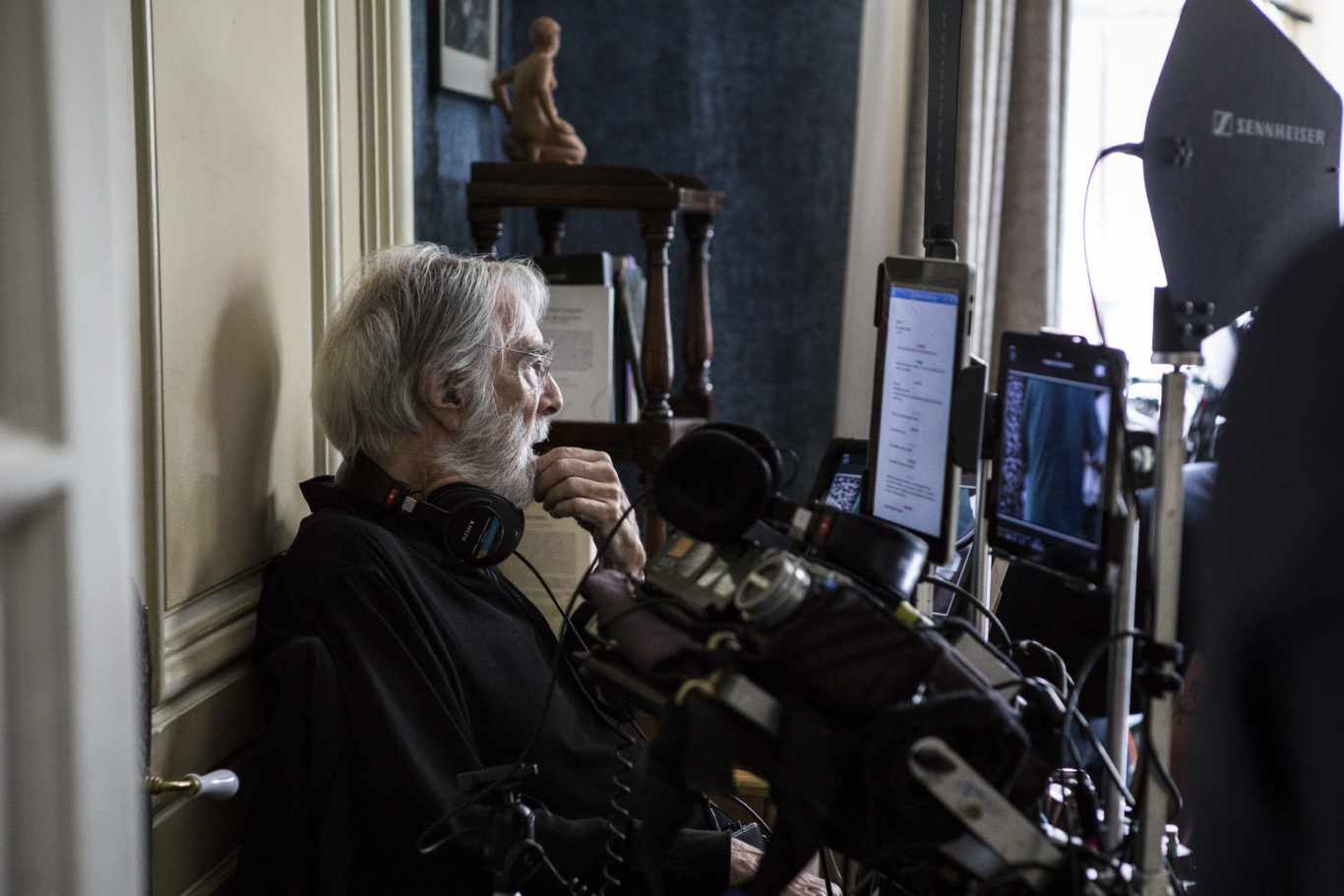Austrian filmmaker Michael Haneke is known for his unsparing vision of just-below-the-surface violence in films like Caché and The Piano Teacher. His newest film, Happy End—a black comedy about the dissolution of a French middle-class family—is almost lighthearted by comparison, but it still features the director’s surgical deconstruction of modern life. In Village Voice, Corey Atad interviews Haneke about the new film and about how his filmmaking has changed in recent years. Read an excerpt from the interview below, or the full piece here.
One of the things I like most about Happy End was how brutally you were skewering the high-class bourgeois attitude.
I think it would be a false takeaway if you had the impression that I was trying to skewer or deal with the bourgeoisie, a class that we think of in [terms of] the early twentieth century, but that doesn’t exist anymore. Western societies, at least Europe — because I can only speak for Europe, as that’s only what I know — consist really of entirely middle class, with the exception of very few families. The middle class may be slightly wealthier or slightly less wealthy than others, but nonetheless, everyone belongs to it …
It connects to the way you bring in digital media, Facebook Live, and how all that flattens people’s lives. It seems to match some of the things you’ve done previously in your work, especially in Caché with the video cameras, but now it’s public. Do you find that unsettling, or interesting?
Both. It’s unsettling and interesting (laughs). It’s simply a fact of life. It exists, and you can’t get around it. It’s also the speed with [which] this revolutionary change is taking place in society; it’s unprecedented in human history. The extent and speed with which new technology has asserted itself, has permeated our lives in the course of twenty years, is unheard-of. If you think of the movable press invented by Gutenberg — that took centuries before it permeated all of society, whereas today our society is completely changed by the digital media. I couldn’t work professionally without making use of these new media: the cellphone, email. At the same time, life has become more virtual. If you’re sitting in the subway, then people don’t look at each other anymore. They’re all staring at their cellphones. Even if you go into cafés, couples are sitting together at tables, but they’re not talking [to] each other — they’re texting. It’s not that I find it good or bad; I’m not passing judgment on it. But since I’m trying to grapple with contemporary society and depict contemporary society, I can’t get around showing that.
Image: Michael Haneke on set. Via Village Voice.
